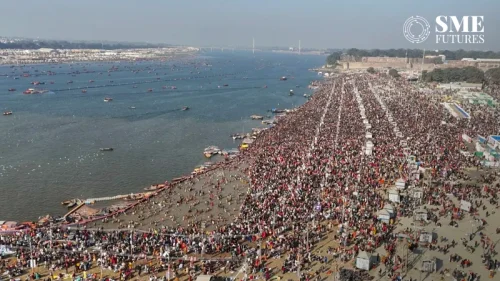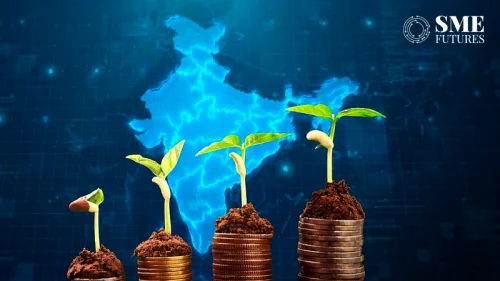Morgan Stanley has lowered India’s GDP growth forecasts to 7.6 per cent for F2023 from 7.9 per cent and to 6.7 per cent for F2024 (from 7 per cent) due to higher oil prices and slower global growth.
The foreign brokerage said slower global growth, adverse terms of trade shock, and impact on business confidence from geopolitical tensions weigh on the near-term outlook Morgan Stanley’s global economics team expects global growth to average 2.9 per cent YoY in 2022 slowing from 6.2 per cent growth in CY21. Against this backdrop, it has lowered forecasts of India’s GDP growth.
“Despite the cyclical headwinds, however, we see the economy expanding at above pre-pandemic growth rates in 2022 and 2023: We expect support from the government’s supply-side response and the reopening vibrancy to help counter the downside. We expect reopening vibrancy to help the informal sector, in turn supporting consumption growth, which has been a laggard. The government’s policy reforms, plus expansion of public infrastructure spending alongside an increase in capacity utilisation levels, should help private CAPEX to recover in 6-9 months.” it said in a report.
Morgan Stanley expects macro stability indicators to worsen.
“Building in the impact of adverse terms of trade, we expect both inflation and the current account deficit to deteriorate. We expect broad-based price pressures, which will keep CPI inflation above the 6 per cent mark through October 2022, with the average CPI expected to be 6.5 per cent for F2023. Similarly, reflecting the commodity price pressures, we expect the current account deficit to widen to a 10-year high of 3.3 per cent of GDP in F2023,” it said.
With inflation concerns rising, the RBI raised the repo rate 40bp, to 4.4 per cent, in an off-schedule meeting in May.
Morgan Stanley expects front-loaded rate hikes and pencil in hikes of 50bp each in the June and August meetings, to be followed by back-to-back rate hikes to take the policy rate to 6 per cent by December 2022. We expect the terminal policy rate to be 6.5 per cent.
The brokerage sees risks skewed to the downside for growth: A slowdown in global growth, higher commodity prices, and potential risk aversion in global capital markets expose India to downside risks.
The key channels of impact will likely be higher inflation, weaker consumer demand, tighter financial conditions, an adverse impact on business sentiment, and a delay in CAPEX recovery. On the other hand, a positive resolution of geopolitical tensions and a decline in global commodity prices would improve the domestic and external demand outlook.











